
BA (Hons) Early Childhood
Make a difference to the lives of young children. Learn how to support child development and education and gain a Level 6 Early Years qualification. BA (Hons) Early Childhood prepares you for a career working with young children in many sectors including education and health. *Please note this course is open for direct transfers onto the second or third years only, no first year applications will be accepted*


Work placements in every year of the course

Apply now for this course

Keep in touch with this course
Entry requirements
Three A-levels at grades CCC or above
Or BTEC triple grades MMM or above
Or Access 23-45 D/M with min 6D
Or T level P (C+)
And GCSE English Language at grade 4 or grade C or above
We are committed to safeguarding and promoting the welfare of children and students. All students are expected to share this commitment and demonstrate consistently high standards of personal and professional conduct.
Students with an appropriate Level 5 qualification, such as a foundation degree, are invited to apply for entry to year three of the course
UCAS code CHS1
UCAS institution code P63
Duration Three years full-time or up to six years part-time
Any questions?
Contact Tara Godber, our Applicant Support Coordinator, if you have any questions. Email applicantsupport@marjon.ac.uk and Tara will get back to you.
Course Summary
BA (Hons) Early Childhood is designed for those who want to develop their career working with younger children, and gain skills and knowledge around early childhood. You’ll understand the steps children take on their learning and developmental journey, and learn how to support them along the way.
You'll focus on how children develop language and child psychology, as well as a broader understanding of educational policy and practice. You’ll take part in work-based learning with placement opportunities, during which you’ll be encouraged to be critically reflective of your own work, as well as observing the practice of other professionals.
On completion you'll gain certification of Graduate Practitioner Competencies at Level 6, which is supported by the Early Childhood Studies Degree Network (ECSDN) and recognised by the Department for Education’s Career Progression for the Early Years Workforce. This will qualify you to work as an Early Years Educator and you'll develop a portfolio of evidence of your skills and practice at Level 6 to present to Early Years employers.
BA (Hons) Early Childhood provides a clear pathway to postgraduate study and to Early Years Teacher Status (EYTS) such as a one year fully funded PG Diploma in Early Years with Initial Teacher Training. Or you may progress to Qualified Teacher Status (QTS) or social work or youth work training.
Why this course at Marjon?
Experiment with different styles of working with children in a variety of settings
Gain certification in Early Years with your skills recognised at Level 6
Follow this degree with Postgraduate Early Years Initial Teacher Training with Early Years Teacher Status (EYITT), also available at Marjon (and currently fully funded)
Learn from highly knowledgeable tutors who are passionate about quality early years education and care
Develop a portfolio of evidence of your skills and practice at Level 6 to present to Early Years employers
Prepares you to progress into leadership roles in Early Years
Modules for this course
Course Snapshot
“ Through this course you will qualify as an Early Years Educator. You'll gain plenty of experience working with children, and understand the theories behind your work. You'll be well placed to go into postgraduate study to gain Early Years Teacher Status.”
1st Year
An introduction to education
Creative and inclusive practice
Communication and language
Child development
Play, holistic development and the Early Years Foundation Stage
Work based learning in the early years 1
2nd Year
Work based learning in the early years 2
Creativity in the outdoors
Safeguarding and child protection in the early years
Educational research
Childhoods in a globalised world
Learning & teaching
3rd Year
Work based learning in the early years 3
Leadership and quality in the early years
Supporting children and young people
Rethinking Education through Critical Pedagogy
Research project
This course is perfect if you’re curious about
How do children develop? Which skills do they learn first?
Why do some children learn faster than others, and at what stage do we need to intervene?
How important is play to children's development? Do young children develop better in nursery or at home?
How does our knowledge of psychology affect the way we should work with children?
How does childhood differ around the world? What can we learn from how other cultures treat children, socially and politically?
How might you support a child with a mental health condition?
What might you become?
You will qualify to work in the Early Years Sector as an Early Years Educator. You can also progress on to early years or primary teaching through a postgraduate qualification (usually PG Diploma with EYITT, PGCE or School Direct).
Other opportunities include community education, integrated services, children’s workforce professionals, care services and social work. Students can also progress to postgraduate psychology courses should they wish to move into the area of child psychology.
Accreditation
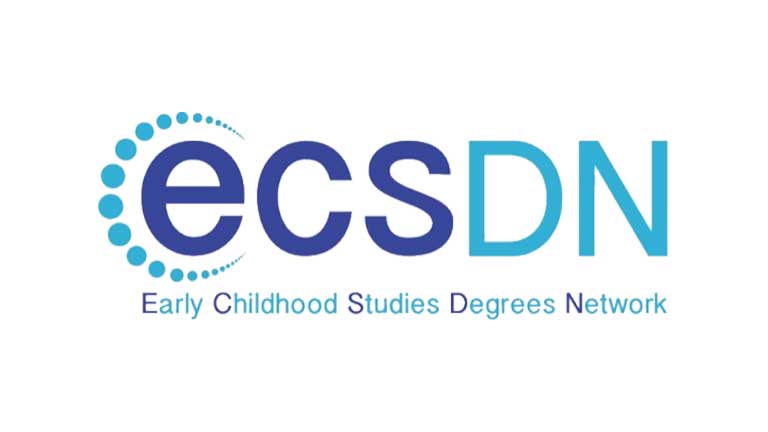
Early Childhood Studies Degree Network (ECSDN)
ECSDN manage the Early Childhood Graduate Practitioner Competencies in consultation with students, higher education institutions, and employers, with an aim of ‘strengthening a graduate-led Early Childhood workforce that is responsive to workforce needs and improves outcomes for children.
How you’ll be taught and assessed?
How will you be taught?
Teaching includes lectures, seminars, workshops, placements, visits to local settings and masterclasses.
How will you be assessed?
Assessments include poster presentations, the making of artefacts, essays and blogs.
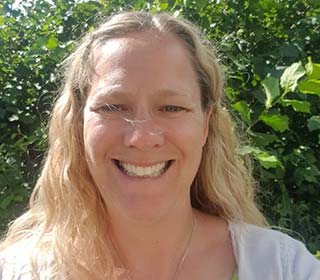
Hannah is a former SureStart Children's Centre Manager, Nursery Manager and Early Years Professional, assessor and mentor. She is particularly interested in Early Years, Play, Inclusion and Leadership.
Fees and funding
Fees UK students: £9,250 per annum
Fees for International students: £14,500 per annum
This fee covers your tuition and access to course-specific equipment and facilities, as well associated services including access to the library, study skills support, IT support, student support and wellbeing services and membership of the Student Union. There may be additional costs by course.
Funding available for this course
Our Student Funding Advisors offer confidential and impartial advice about your funding options.
Learn moreLecturers

Selina Day is a qualified teacher who has extensive experience working within the primary sector. She is the programme lead for BA Primary Education and lecturers within the Institute of Education and School of Arts and Humanities. At the university she is involved in various activities that sit outside her programme and school responsibilities. She is member of SCION (Sustainability, Creativity and Innovation) research group and has been a chair of governors at a local Plymouth school. Currently Selina is a member of the First Federation Academy Trust. As well as her academic role at the university, she is undertaking her PhD in the area Contemporary Children’s Literature and Religious Education.
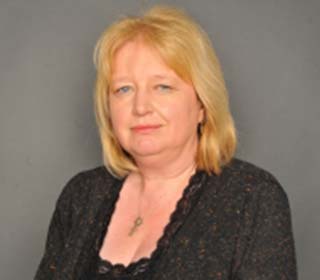
Jan was previously a primary head teacher in the South West and she now leads a teaching team at Marjon who together draw on decades of classroom experience and wide-ranging research specialisms to deliver Education courses.
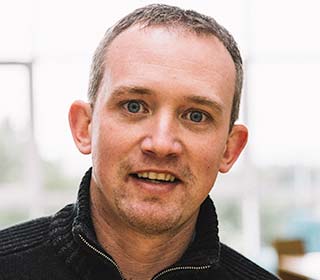
Jonathan's specialist area is disability studies. He is interested in viewing disability and impairment in terms of the way they impact on inclusion and much of his work is concerned with how social theory can be used to make sense of the lives of disabled people. Jonathan has an acquired brain injury so his work is influenced by direct experience of disability.

Hannah is a former SureStart Children's Centre Manager, Nursery Manager and Early Years Professional, assessor and mentor. She is particularly interested in Early Years, Play, Inclusion and Leadership.
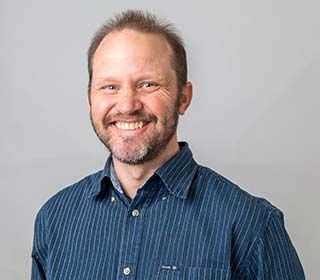
Miles has more than twenty years of experience teaching, including to adults and children. An experienced English Language and Primary School teacher, Miles is also a postgraduate researcher of children's curriculum experience.
More information
The Early Childhood Graduate Practitioner Competencies broaden a graduate’s learning to make them more rounded practitioners. The Early Childhood Graduate Practitioner Competencies are:
- Advocating for young children’s rights and participation
- Promote holistic child development
- Work directly with young children, families, and colleagues to promote health, well-being, safety, and nurturing care
- Observe, listen, and plan for young children to support their well-being, early learning, progression, and transitions
- Safeguarding and child protection
- Inclusive practice
- Partnership with parents and caregivers
- Collaborating with others
- Professional development
Find out more about studying BA (Hons) Early Childhood at Marjon
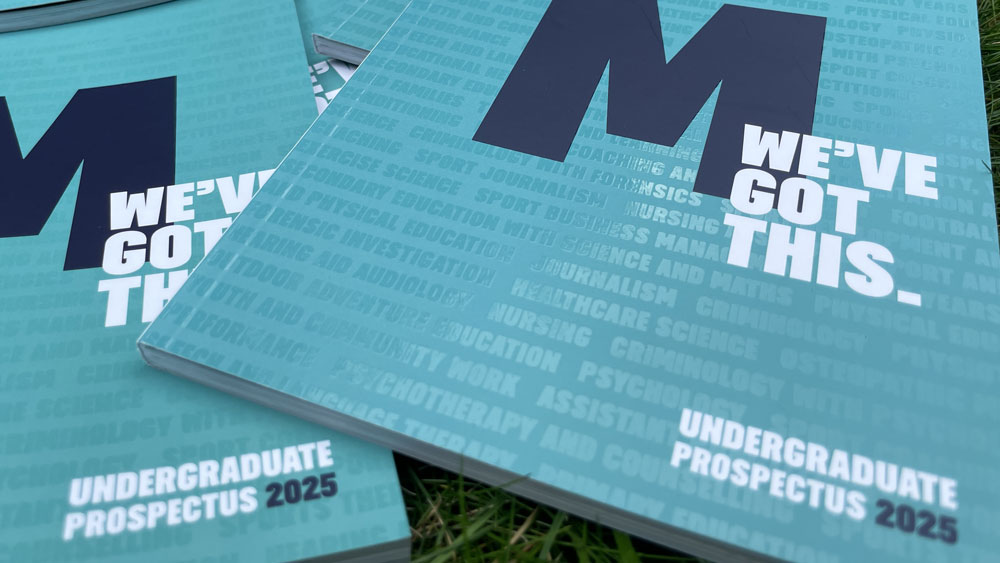
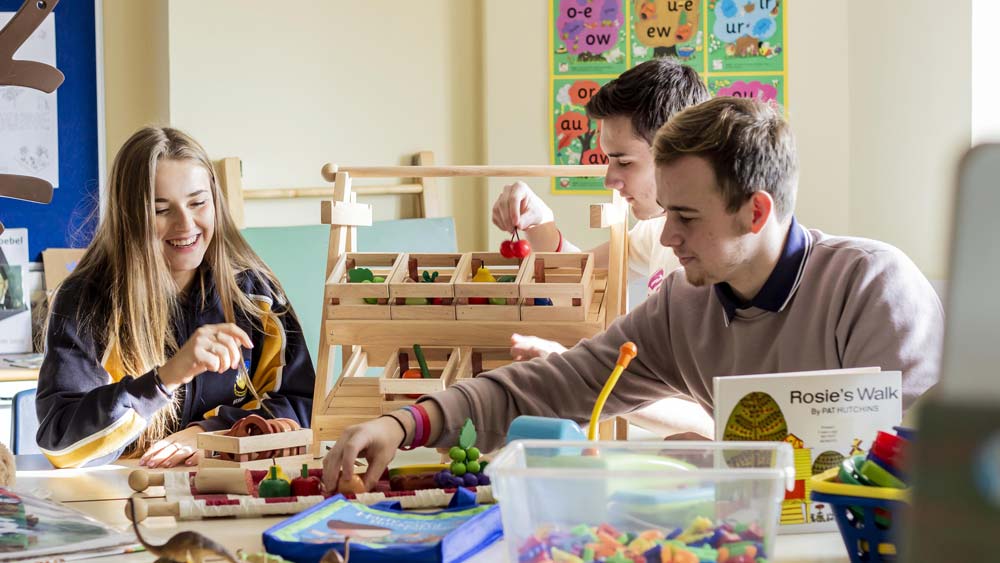
Discover Uni collects data about university courses in the UK. All universities publish Discover Uni data on their online course pages enabling you to compare similar courses at different universities.


